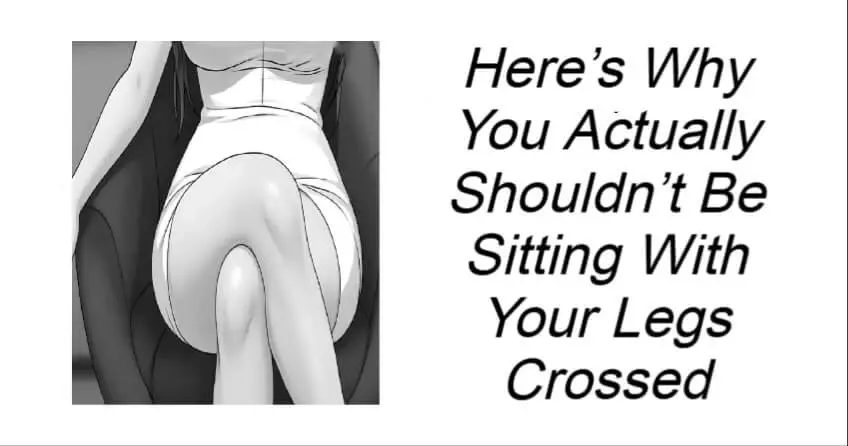Here’s Why You Actually Shouldn’t Be Sitting With Your Legs Crossed
It’s comfy, it feels natural, and sometimes it’s just how you have to sit. But crossing your legs for too long might be doing more harm than you think — and science backs it up.
What Happens When You Cross Your Legs Too Often?
🔹 Numbness
Sitting cross-legged can compress a nerve behind your knee, which is why your foot or leg may go numb after a while. That pins-and-needles feeling? Not so great long-term.
🔹 Raised Blood Pressure
Yep, crossing your legs can actually cause a temporary spike in blood pressure. Why? It pushes blood upward, making your heart work harder. Not ideal, especially if you have high blood pressure or circulation issues.
🔹 Varicose Veins
Frequently crossing your legs can stretch and damage the soft structure of your veins, increasing the risk of developing varicose veins over time.
Posture Problems and Pain
🔸 Hip & Back Pain
Crossing your legs can throw your pelvis and spine out of alignment. Over time, this puts strain on your lower back and hips — and that discomfort can sneak up on you if you sit this way regularly.
🔸 For Men: Not the Best Seat
Men might want to skip the leg cross too. The position can compress delicate parts and potentially affect things like temperature regulation — which isn’t ideal for fertility.
What’s the Healthiest Way to Sit?
- Keep both feet flat on the ground
- Sit with your back straight and shoulders relaxed
- Stand or walk for a couple of minutes every 30 minutes
- Avoid sitting in one position for too long — change it up often!
Crossing your legs here and there isn’t going to cause major damage, but doing it constantly can definitely take a toll. So sit tall, uncross those legs now and then, and take stretch breaks — your body will thank you!
You’ve just read, Why You Actually Shouldn’t Be Sitting With Your Legs Crossed. Why not read Manager Had To Hire A New Employee.

